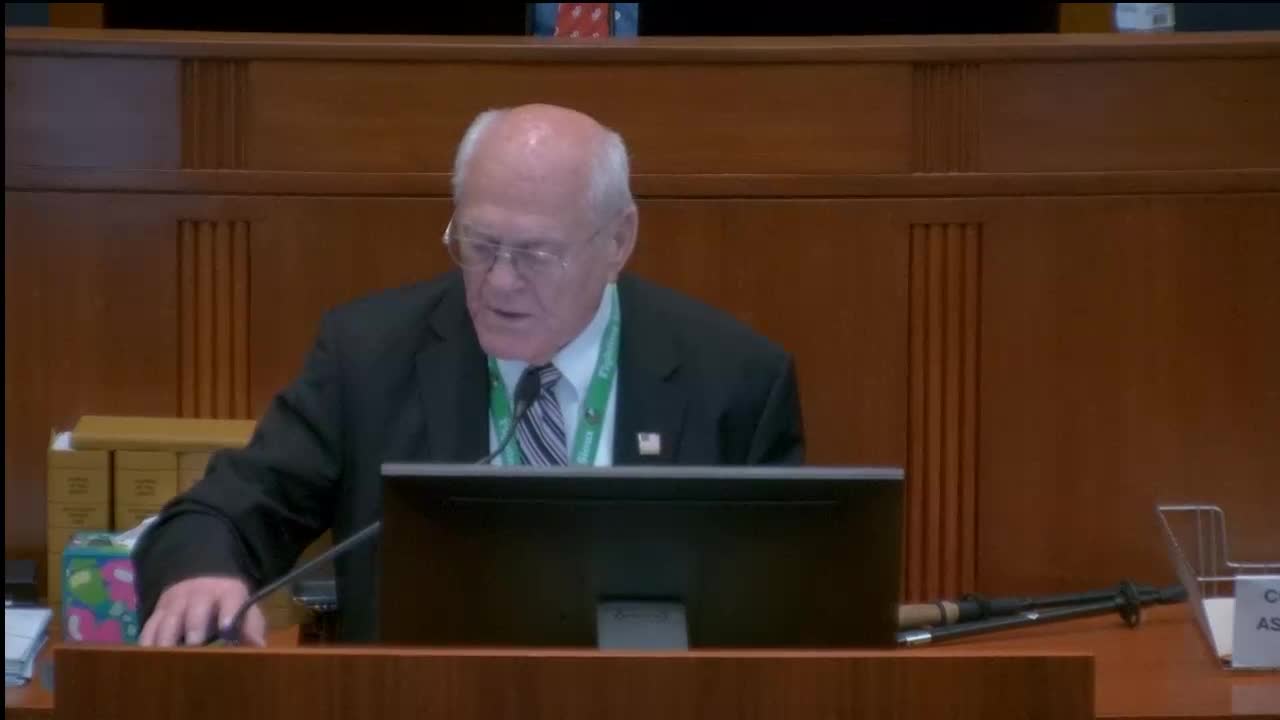House approves bill allowing dentists to jointly negotiate non‑fee contract terms with insurers
Get AI-powered insights, summaries, and transcripts
Subscribe
Summary
The North Dakota House passed Senate Bill 2375 on March 26, 2025, 78–14. The measure authorizes voluntary, state‑supervised joint negotiations by dental providers over non‑fee contract terms with dental insurers. Supporters called it a tool for small dental practices; opponents warned of antitrust, competition and oversight concerns.
BISMARCK, N.D. — The North Dakota House voted 78–14 on March 26 to approve Senate Bill 2375, a measure that allows dental providers to enter voluntary, jointly negotiated talks with dental insurers over non‑fee contract terms under a state‑supervised process.
The bill enacts a new section in chapter 43‑28 of the North Dakota Century Code to permit “joint negotiations by dental providers with dental insurers,” proponents said, and places procedural oversight responsibilities with the attorney general’s office.
Supporters said the change is narrow and aimed at protecting mostly small, independent dental offices that they said currently face take‑it‑or‑leave‑it contracts from large insurers. “Dental offices are small town businesses across our state that need our protection,” Representative Dressler said on the House floor. Dressler argued the bill gives dentists “a tool to fight back” against insurer market power.
The bill carrier, Representative Schauer, told members the measure would let dental providers jointly negotiate “certain non fee related contract terms with dental insurers.” Schauer also reported the Industry, Business and Labor Committee issued a do‑not‑pass recommendation but described the legislation’s intent as focused on non‑fee administrative contract provisions rather than fees.
Opponents warned the measure risks running afoul of federal and state antitrust law and could make North Dakota an outlier. “Federal antitrust laws generally prohibit joint negotiations by competitors because they can reduce market competition,” Representative Casper read from an American Dental Association memo during debate, citing the potential legal issues. Several other representatives said giving the state a role in supervising what amounts to coordinated negotiations raises both legal and practical questions, including whether the attorney general’s office should be assigned that referee role.
Other concerns included the potential for increased attorney involvement to raise costs, uncertain effects on premiums and access, and the possibility that coordinated bargaining might be used to alter market dynamics in ways that disadvantage smaller competitors. Representative D. Ruby warned the measure could lead to unintended anticompetitive outcomes if safeguards were not sufficient.
Proponents repeatedly said the bill is voluntary and does not authorize price or fee negotiations. Representative Casper emphasized that “the dental offices are not asking to negotiate prices. They are not asking to negotiate fees or money. They are simply asking to be able to speak, talk and work on the administrative terms in these contracts amongst their offices.” Representative Moschenbacher echoed that the bill’s language uses permissive “may” and “voluntary” terms.
The House vote followed floor debate that ranged from legal risk and policy design to access and workforce issues. The bill passed 78–14 and was declared adopted by the clerk.
Votes at a glance: Senate Bill 2375 — Final vote: 78 yeas, 14 nays; outcome: passed.
What happens next: The bill will proceed according to the legislative process (enactment and signature steps not recorded in this floor segment). The legislation directs the attorney general to adopt rules and procedures to implement the state‑supervised negotiation process, as written in the bill text.
Context and significance: Supporters characterize the bill as a limited, voluntary tool for small independent dental providers to address allegedly unfair contract terms imposed by a concentrated insurance market. Opponents say it risks putting the state in the middle of coordinated activity that federal antitrust law typically prohibits, and they noted no other state currently authorizes competing dentists to negotiate jointly with carriers in this manner.
—
